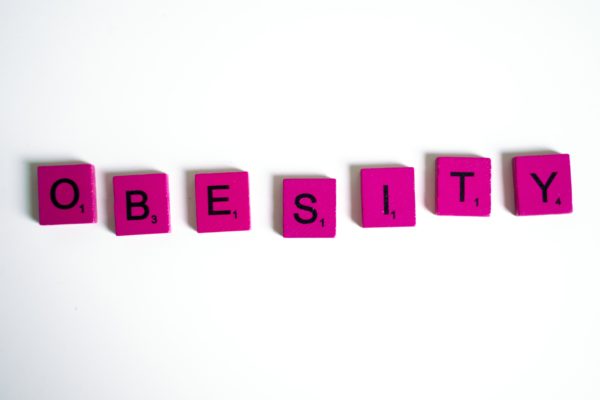The risks and dangers of obesity and overweight offer an unhappy substitute for a healthy lifestyle. And not only does obesity influence the quality of life, it affects the length of your life. According to one estimate, eliminating all deaths from cancer would add two years to the average lifespan. But removing all deaths related to obesity would increase the average lifespan five years. Excessive body fat places a burden upon circulation, respiration, and the kidneys, making obese persons more prone to develop disorders of these organs and systems.
Obesity is related to the prevalence of high blood pressure and atherosclerosis. When the effects of age and blood pressure are taken into consideration, body weight is revealed as a definite risk factor in the development of heart disease. In addition, individuals with a higher body mass index (weight divided by height squared) who experience a heart attack have a greater risk of subsequent sudden death.
More recent research suggests a strong relation between body fat and breast cancer. The relation does not stop there, however. Overweight women have a substantially lower rate of recovery from breast cancer than do lean women.
Fat people have lower exercise tolerance, greater difficulty in normal breathing, and a higher frequency of respiratory infections than do people of normal weight. Other problems associated with obesity are impaired carbohydrate and fat metabolism, joint, bone, and gall bladder disease, diabetes, and asthma. And individuals experiencing a significant gain in body fat often undergo changes in personality and behaviour patterns manifested as depression, withdrawal, self-pity, irritability, and aggression.
Weight Gain
Normally every food you eat can be utilized by the body. When utilized, this food produces heat the potential of food to produce heat is measured in calories. These calories are kilocalories, or large calories which produce 1000 times more heat than the calorie used to measure heat in chemistry and physics. Your body burns calories to perform all its necessary functions heart contraction, breathing, brain function, and so on. When you perform physical activity, you burn additional calories.
When the amount of food you consume equals your body’s need, your weight remains constant. Consuming more than you need results in weight gain. If over a period of time, you take in 3500 calories more than you need, you add one pound of fat to your weight. This period of time may be days, weeks, or months. Converting conversely, in order to lose one pound of body fat you must have a deficit of 3500 calories.
Changes in body fat usually parallel those in body weight. In the bulk of the population, weight gain and excess fat go hand-in-hand. Most people can bring their body fat down to acceptable levels simply by reducing to the recommended weight for their frame size.
You accumulate body fat in two ways. One way is by enlarging or filling existing fat cells with more fat (fat cell hypertrophy). Another way is by increasing the total number of fat cells (fat cell hyperplasia).
Childhood Obesity Causes and Effects
Obesity of infancy and childhood involves both processes. There appear to be three critical periods when the number of fat cells increases significantly-the last trimester of pregnancy. The first year of life, and the adolescent growth spurt. Once they are formed, the number of fat cells cannot be reduced. It is possible that the number of fat cells produced can be influenced through some form of intervention during these critical periods of life.
It is important for expectant mothers to avoid an unusually large weight gain during the last trimester of pregnancy. For parents to monitor the diet and exercise patterns of children to prevent the formation of unwanted fat cells.
By avoiding large weight gains during the last three months of pregnancy, the expectant mother may help the unborn child avoid the formation of an abnormal number of fat cells. By analogy, the mothers who go on crash diets during the first trimester of pregnancy may inadvertently subject their child to conditions which program the developing brain to respond to life as if it is starving.

Causes and effects of Obesity Among Adults
The excess fat carried by the adult is the result of filling existing fat cells with more fat, rather than of producing new fat cells. This acquisition of fat takes place for three basic reasons.
- We eat “just a bit more” even when our stomach feels full.
- We decrease our physical activity.
- Our basal metabolic rate declines during the aging process.
How many times have you failed to cease eating even though you realized that you had eaten enough? When you take in more calories than the body needs, you will gain weight. It doesn’t matter whether the calories are from steak or ice cream; your body does not distinguish the sources. For many adults, a daily caloric excess equivalent to one-half a slice of bread or one-half a glass of beer can result in a weight gam of more than 40 pounds within ten years.
An intake of just 100 calories more per day than you need will result in a weight gain of 10 pounds during one year. Many American adult males consume as many as 3,300 calories a day. This is the amount required for an active 190-pound man, which is certainly more than average. “Creeping obesity” is the way most people gain weight.
In addition to eating more than we should, we decrease our physical activity as we grow older. In this modern age of mechanical convenience and conveyance, many people engage in so little physical activity. Just eating to the point of feeling satisfied means consuming excess calories. If our intake of food continued to decrease as our physical activity decreased, we probably would gain less weight. However, decreasing physical activity below a certain point will no longer be accompanied by a decrease in the appetite.
What causes Obesity & Overweight
Given the present standard of sedentary living in most European countries, it is almost impossible to avoid obesity unless exercise habits are integrated into one’s lifestyle. When we are active enough, we can safely consume more food. Many Olympic athletes consume over 5,000 calories per day and do not gain weight because of their physical training.
We also tend to gain weight because of the decline with age in our basal metabolic rate. A considerable amount of energy must be utilized to maintain certain vital functions respiration, heart contraction, glandular secretions. This release of energy is called basal metabolic rate (BMR) and is measured when you are awake, reclined, and relaxed. The number of calories required for basal metabolism varies with your age, weight, stature, hormone production, and sex.
Normal basal metabolism utilizes about one calorie per hour for each kilogram (2.2 pounds) of body weight. Another method for estimating the necessary calories for a male’s BMR is to multiply his weight by 11. The female’s requirement is equal to her weight multiplied by 10; her BMR is approximately 10% lower than a male’s. The average adult male needs approximately 1400 to 1800 calories a day for his basal metabolism. Whereas the average adult female needs approximately 1200 to 1400.


